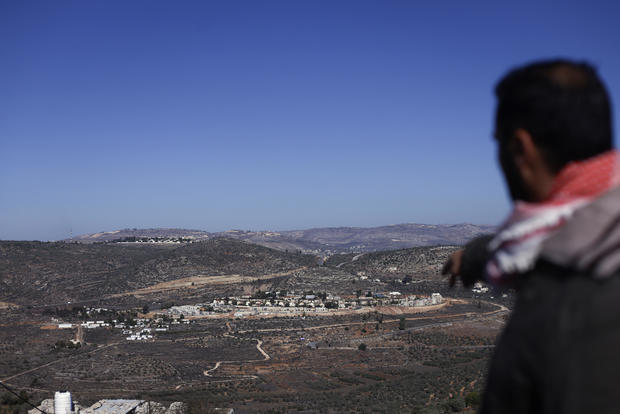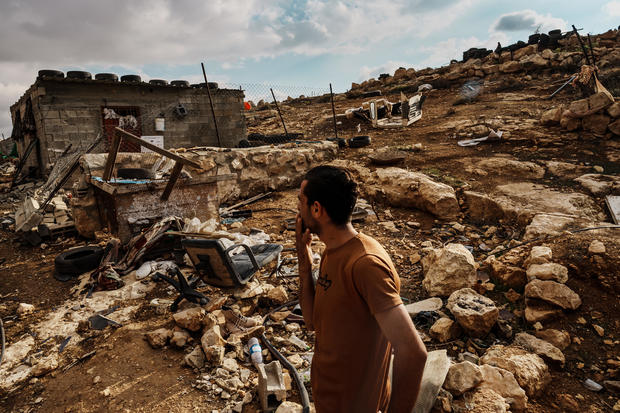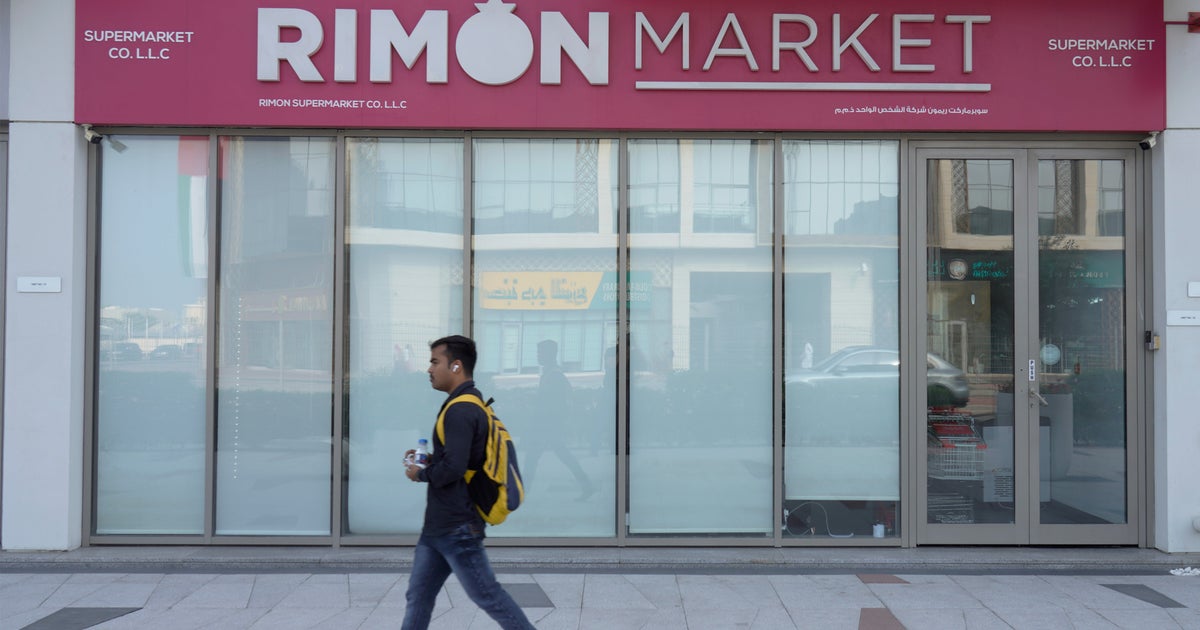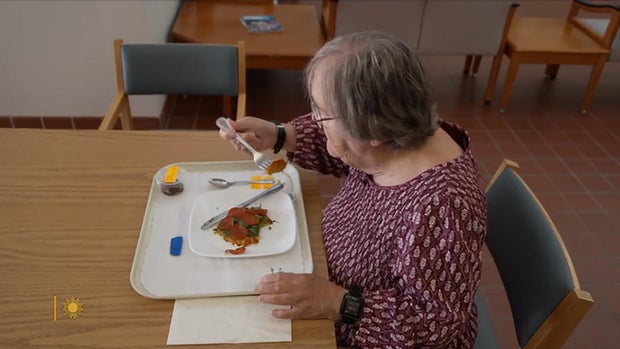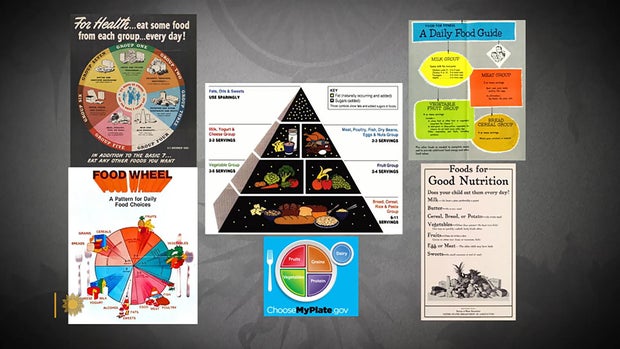CBS News
In rare action against Israel, U.S. will deny visas to extremist West Bank settlers
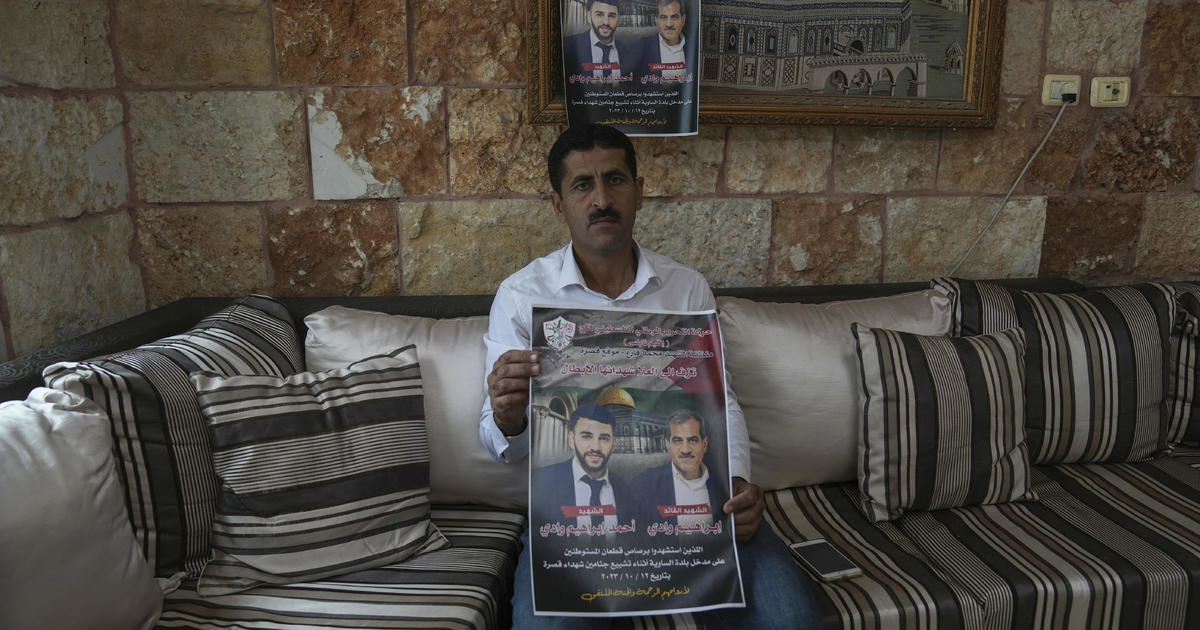
In a rare punitive move against Israel, the State Department said Tuesday it will impose travel bans on extremist Jewish settlers implicated in a rash of recent attacks on Palestinians in the occupied West Bank.
Secretary of State Antony Blinken announced the step after warning Israel last week that President Biden’s administration would be taking action over the attacks.
Blinken said the new visa restriction policy “will target individuals believed to have been involved in undermining peace, security, or stability in the West Bank, including through committing acts of violence or taking other actions that unduly restrict civilians’ access to essential services and basic necessities.”
“The United States has consistently opposed actions that undermine stability in the West Bank, including attacks by Israeli settlers against Palestinians, and Palestinian attacks against Israelis,” Blinken said on Tuesday. “As President Biden has repeatedly said, those attacks are unacceptable. Last week in Israel, I made clear that the United States is ready to take action using our own authorities.”
KENZO TRIBOUILLARD/AFP via Getty Images
The decision comes at a sensitive moment in U.S.-Israeli relations. The Biden administration has firmly backed Israel since it was attacked by Hamas on Oct. 7, even as international criticism of Israel has mounted.
The new policy falls under the Immigration and Nationality Act and is expected to affect “dozens of individuals and potentially their family members,” State Department spokesman Matthew Miller said in a briefing Tuesday, adding that the policy will apply to Israelis and Palestinians.
Since Palestinians are not included in the U.S.’s Visa Waiver Program, their eligibility for applying for visas would be affected if found guilty of violence, Miller said. Israelis who have committed violence will either have their visa revoked or be blocked from applying for a visa.
When asked why the U.S. was taking action now, given the significant uptick in violence in the months leading up to the war, Miller said the U.S. has repeatedly raised the issue with the Israeli government and emphasized the need to curb settler violence. Miller said the U.S. has not seen significant action taken by the Israeli government.
Mahmoud Illean / AP
Miller declined to comment on the U.S.’s plan to hold American settlers to account for violence, saying the Israeli government is primarily responsible for them; he deferred further questions to the Department of Justice.
The Israeli Embassy in Washington declined to comment on the development.
Israel’s Defense Minister Yoav Gallant on Tuesday condemned violence against Palestinians by Jewish settlers in the West Bank, Reuters reported, saying only the police and the military had the right to use force.
In recent weeks, the Biden administration has stepped up calls on Israel to do more to limit civilian casualties as the Israelis expand their offensive and target densely populated southern Gaza. The U.S. has refrained from outright criticism of that offensive. It has been increasingly outspoken, however, about settler violence in the West Bank and Israel’s failure to respond to U.S. calls to stop it.
The U.N. Office for the Coordination of Humanitarian Affairs said Monday that since Oct. 7 at least eight Palestinians in the West Bank have been killed by settlers. The U.N. agency said it has recorded 314 attacks by settlers that have resulted in Palestinian casualties, damage to Palestinian-owned property or both. One-third of the attacks included threats with firearms, including shootings, and in nearly half of the attacks the settlers were accompanied or actively supported by Israeli forces.
Marcus Yam / Los Angeles Times
“Both Israel and the Palestinian Authority have the responsibility to uphold stability in the West Bank,” Blinken said earlier. “Instability in the West Bank both harms the Israeli and Palestinian people and threatens Israel’s national security interests.”
Tuesday’s move comes shortly after Israel was granted entry into the U.S. Visa Waiver Program, which allows its citizens visa-free entry into the U.S. Those targeted by the action will not be eligible for the program, and those who hold current U.S. visas will have them revoked.
CBS News
A study to devise nutritional guidance just for you

It’s been said the best meals come from the heart, not from a recipe book. But at this USDA kitchen, there’s no pinch of this, dash of that, no dollops or smidgens of anything. Here, nutritionists in white coats painstakingly measure every single ingredient, down to the tenth of a gram.
Sheryn Stover is expected to eat every crumb of her pizza; any tiny morsels she does miss go back to the kitchen, where they’re scrutinized like evidence of some dietary crime.
Stover (or participant #8180, as she’s known) is one of some 10,000 volunteers enrolled in a $170 million nutrition study run by the National Institutes of Health. “At 78, not many people get to do studies that are going to affect a great amount of people, and I thought this was a great opportunity to do that,” she said.
CBS News
It’s called the Nutrition for Precision Health Study. “When I tell people about the study, the reaction usually is, ‘Oh, that’s so cool, can I do it?'” said coordinator Holly Nicastro.
She explained just what “precise” precisely means: “Precision nutrition means tailoring nutrition or dietary guidance to the individual.”
The government has long offered guidelines to help us eat better. In the 1940s we had the “Basic 7.” In the ’50s, the “Basic 4.” We’ve had the “Food Wheel,” the “Food Pyramid,” and currently, “My Plate.”
CBS News
They’re all well-intentioned, except they’re all based on averages – what works best for most people, most of the time. But according to Nicastro, there is no one best way to eat. “We know from virtually every nutrition study ever conducted, we have inner individual variability,” she said. “That means we have some people that are going to respond, and some people that aren’t. There’s no one-size-fits-all.”
The study’s participants, like Stover, are all being drawn from another NIH study program called All Of Us, a massive undertaking to create a database of at least a million people who are volunteering everything from their electronic health records to their DNA. It was from that All of Us research that Stover discovered she has the gene that makes some foods taste bitter, which could explain why she ate more of one kind of food than another.
Professor Sai Das, who oversees the study at Tufts University, says the goal of precision nutrition is to drill down even deeper into those individual differences. “We’re moving away from just saying everybody go do this, to being able to say, ‘Okay, if you have X, Y and Z characteristics, then you’re more likely to respond to a diet, and somebody else that has A, B and C characteristics will be responding to the diet differently,'” Das said.
It’s a big commitment for Stover, who is one of 150 people being paid to live at a handful of test sites around the country for six weeks – two weeks at a time. It’s so precise she can’t even go for a walk without a dietary chaperone. “Well, you could stop and buy candy … God forbid, you can’t do that!” she laughed.
While she’s here, everything from her resting metabolic rate, her body fat percentage, her bone mineral content, even the microbes in her gut (digested by a machine that essentially is a smart toilet paper reading device) are being analyzed for how hers may differ from someone else’s.
Nicastro said, “We really think that what’s going on in your poop is going to tell us a lot of information about your health and how you respond to food.”
CBS News
Stover says she doesn’t mind, except for the odd sounds the machine makes. While she is a live-in participant, thousands of others are participating from their homes, where electronic wearables track all kinds of health data, including special glasses that record everything they eat, activated when someone starts chewing. Artificial intelligence can then be used to determine not only which foods the person is eating, but how many calories are consumed.
This study is expected to be wrapped up by 2027, and because of it, we may indeed know not only to eat more fruits and vegetables, but what combination of foods is really best for us. The question that even Holly Nicastro can’t answer is, will we listen? “You can lead a horse to water; you can’t make them drink,” she said. “We can tailor the interventions all day. But one hypothesis I have is that if the guidance is tailored to the individual, it’s going to make that individual more likely to follow it, because this is for me, this was designed for me.”
For more info:
Story produced by Mark Hudspeth. Editor: Ed Givnish.
“Sunday Morning” 2024 “Food Issue” recipe index
Delicious menu suggestions from top chefs, cookbook authors, food writers, restaurateurs, and the editors of Food & Wine magazine.
CBS News
A new generation of shopping cart, with GPS and AI

Watch CBS News
Be the first to know
Get browser notifications for breaking news, live events, and exclusive reporting.
CBS News
“All hands on deck” for Idaho’s annual potato harvest

Watch CBS News
Be the first to know
Get browser notifications for breaking news, live events, and exclusive reporting.


